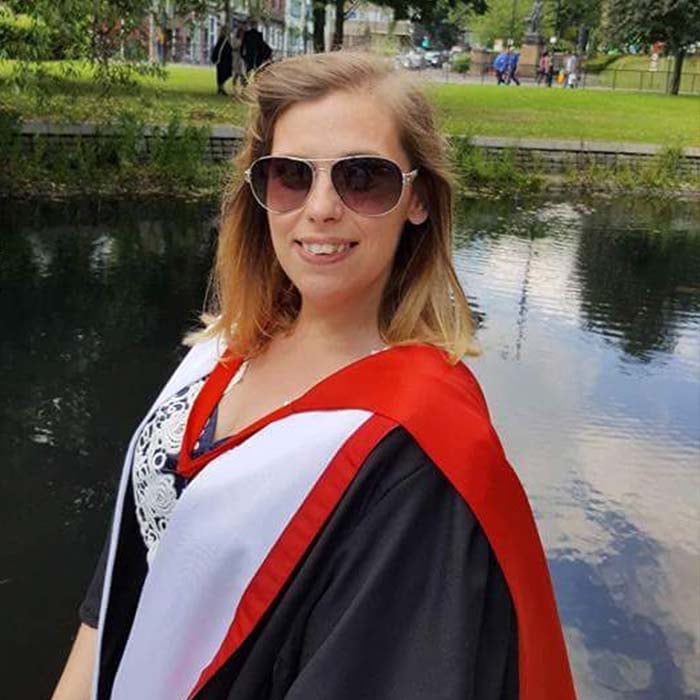Newcastle University | Women in Science
Published: 11 February 2021 | Updated: 9 March 2021 | By: Newcastle University | 12 min read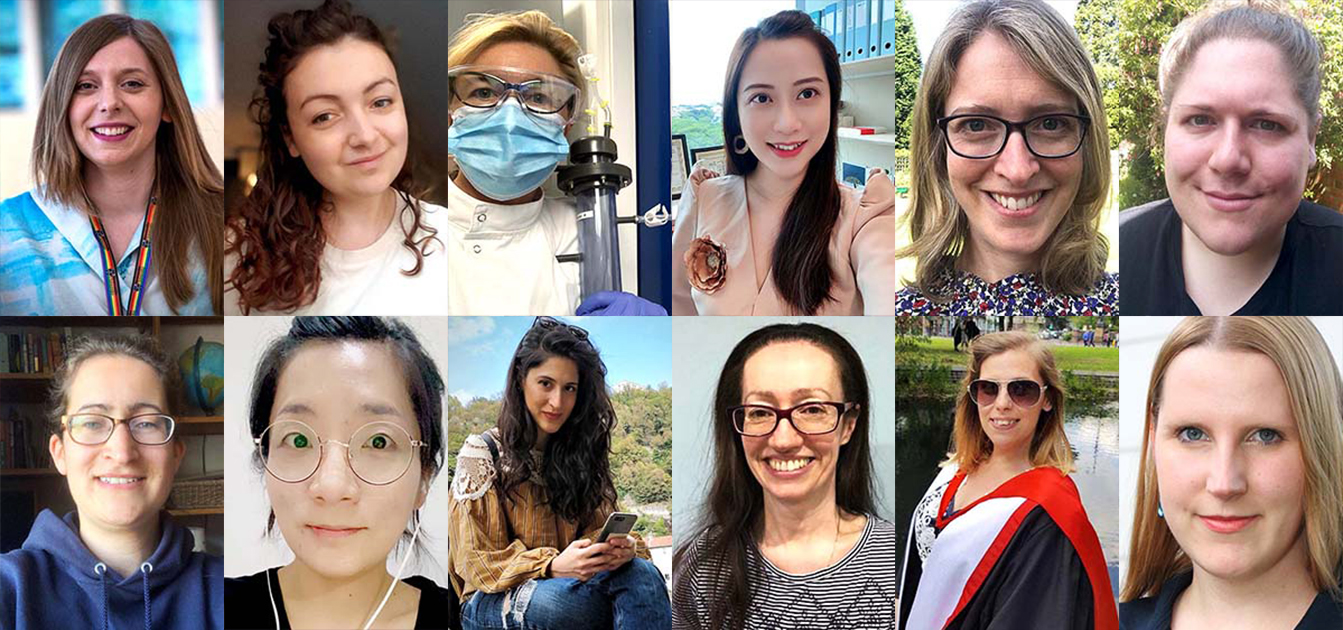
We're celebrating some of the incredible women we have in science, technology, engineering, mathematics and medicine roles here at Newcastle University.
You actually get to change the world
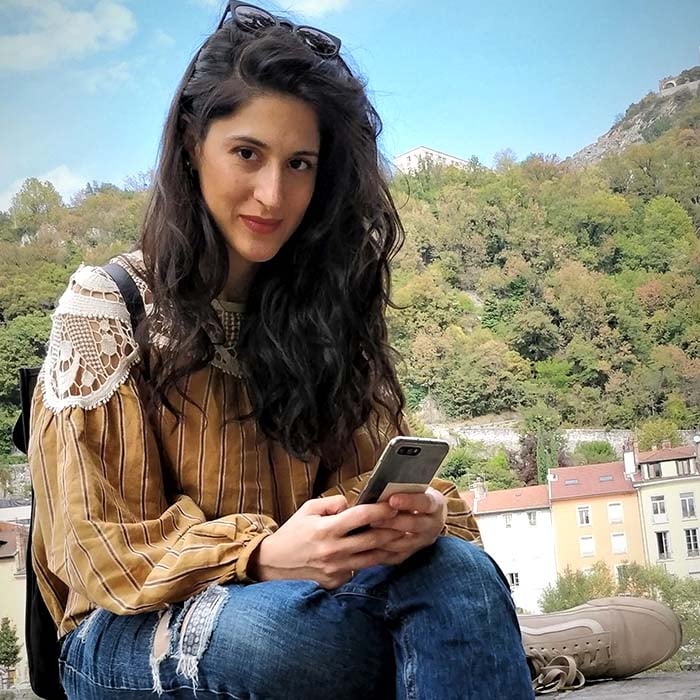
Dr Kelly Kousi, Research Associate in Chemical Engineering
What does it mean to be a woman in STEM?
That sometimes, especially in engineering, you can be one of a kind, something like a unicorn.
What privileges or challenges do you stereotypically face?
Being a minority in the field can be daunting, always trying to prove that you are good enough. However, being here is also rewarding because it means you were able to overcome any preconception and you can now represent what women are capable of in STEM.
What advice would you give to young women going into your industry?
Being a woman in engineering and academia is yet to be easy. Most often you will have to try extra hard to be seen as an engineer and not as a woman engineer. But if you persevere, then it would be worth it, if anything because through this job you actually get to change the world. Just look for the right mentors and people that can inspire you and hold on to always being yourself.
Which women inspire you?
I draw inspiration from women in every field, women who are able to juggle personal and professional life, women who are not afraid to speak their minds while still being themselves. Most of all, I get my inspiration from my mother who is the strongest person I know.
I’ve got the best job in the world!
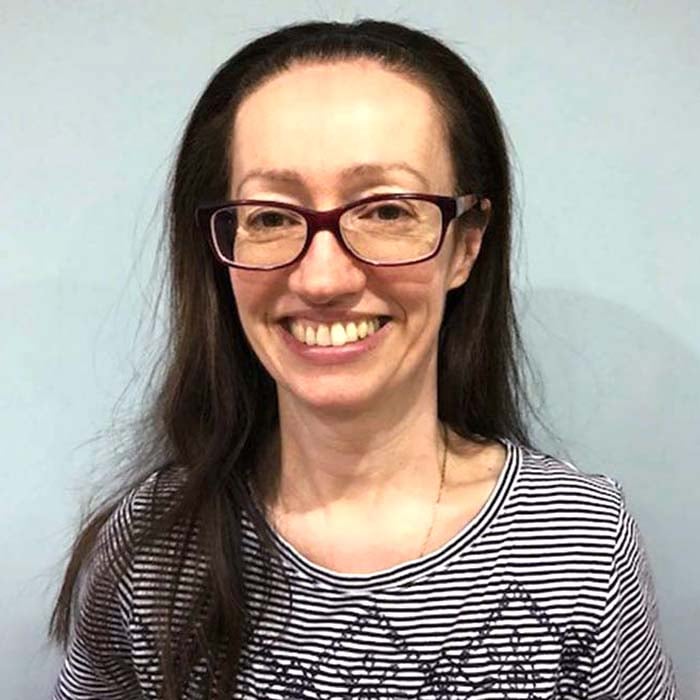
Lisa Deveaux-Robinson, Senior Chemical and Biological Technician in the School of Engineering
What is your role?
I currently manage the One Planet Teaching Lab, named the Houston Lab. It’s the University’s first ever, cross faculty shared teaching lab and it’s simply amazing. My role here is incredibly varied and requires a wide range of knowledge and skills from techniques to instrument usage, time and people management, and safety awareness. I am the coordinator between EE researchers and other School lab users and responsible for Houston based Engineering Master and Undergraduate practicals. I’ve got the best job in the world!
Which women inspire you?
There have been many strong women who have inspired me but one who continually does, is Rosalind Franklin. The British Scientist is best known for her contributions in discovering the molecular structure of Deoxyribonucleic Acid (DNA) but, for me, the scientist’s dogged determination in her work, in the era she worked, is the reason why I admire her so much.
She undoubtedly faced sexism in the workplace – hard to believe that rather than listen to her as the seminar speaker, men found it acceptable to instead discuss her looks and how she was dressed! Rather than letting those prejudices define her, she simply worked harder and remained steadfastly focused on her work. A truly brilliant scientist.
What advice would you give to young women going into your industry?
Probably the easiest question to answer – never give up, work hard and always to the very best of your ability. Take advantage of every opportunity offered to you, be that determined scientist Rosalind Franklin was and never give up on your dreams, because if you dare to dream, you really can achieve it. There will be challenges and difficulties but believe in yourself and never let anybody’s negativity hold you back, remember this, “when someone tells you it can’t be done, it’s more a reflection of their limitations, not yours”. Go for it.
Don’t listen to those who say, “ you can't do that”
Dr Casey Dixon, Senior Analytical Technician
What privileges or challenges do you stereotypically face?
I have definitely faced some challenges. It's all the stereotypical things like pay, pet names at a work place and second guessing whether you are capable to carry out the job at hand. The great thing, though, is that it's given me the determination to do better and an opportunity to have conversations that challenge those preconceptions. I have extremely few challenges at Newcastle University though; it is a great place to work!
What advice would you give to young women going into your industry?
Don’t listen to those who say, “you cant do that”. As soon as I ever heard that statement, it drove me to work even harder. Never underestimate yourself or sell yourself short. Work hard at your studies and when you can, get to know people in your field. I tend to jump into many opportunities and, where sometimes I may have taken on too much, for the most part it has opened up so many other opportunities.
Moreover, have fun! Find a job that you are going to enjoy, it might not be perfect, but don’t settle for something that you don’t like waking up for.
I have the privilege to mentor and encourage young girls to pursue their studies and careers in STEM
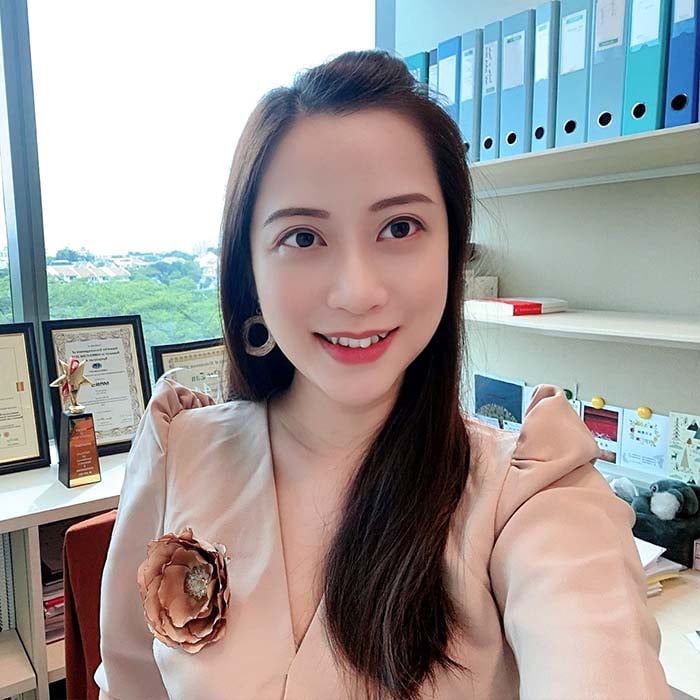
Dr Yen Nee Tan, Associate Professor of Chemical Engineering and Advanced Materials (Singapore campus)
What does it mean to be a woman in STEM?
Chemical Engineering is one of the engineering divisions that has a relatively high number of female-to-male student ratio, despite this it is still lower than 30%. The number is even lower for female engineers working in the chemical industry. However, the ratio should not be a hindrance, it is about having passion for the career in STEM. I am glad to be part of the women in science and will continue to contribute as an academic, a researcher, an educator as well as a mentor for my fellow ladies in the field.
How has your work contributed to the fight against COVID-19?’
Some of my research focuses on the development of ultrasensitive nanosensors for biomedical diagnosis which can be contributed to the fast screening and/or point of care detection of COVID-19 infection. Recently, I have published a few review papers with my collaborators in India and Singapore to share our insights and perspectives on developing point-of-care biosensors and multifunctional nanomaterials towards tackling COVID-19 and future pandemics. I hope these papers will spark new ideas to help the fight against COVID-19.
What privileges or challenges do you stereotypically face?
As a female academic, I have the privilege to mentor and encourage young girls to pursue their studies and careers in STEM. As a women scientist, I do face specific challenges during my pregnancy, e.g., I need to more careful when working in the chemistry lab. As a working mother, it can be difficult sometimes to juggle between family and work. But all these can be overcome with the love and support from our family and workplace.
What advice would you give to young women going into your industry?
Talk to people from different fields, understand the problems, working together to come out with incredible solutions through border-less collaborations. Most importantly, work on those fields that you are really passionate about. Believe in yourself, it can be difficult sometimes to juggle between family and work, but as women, we can endure and embrace the challenges.
What do you do to shape the world in your STEM role?
Be a role model. If we need more women in STEM, it’s our responsibility to inspire them at their young age. As a female academic in science and engineering, I have the privilege to mentor and encourage my students to pursue their studies and careers in STEM as we do need more gender diversity and innovative ideas in the field. Indeed, “The World Needs Science and Science Needs Women” (Alexandra Palt, Executive Vice President, L'Oréal Foundation).
I work on innovative and emerging technology projects
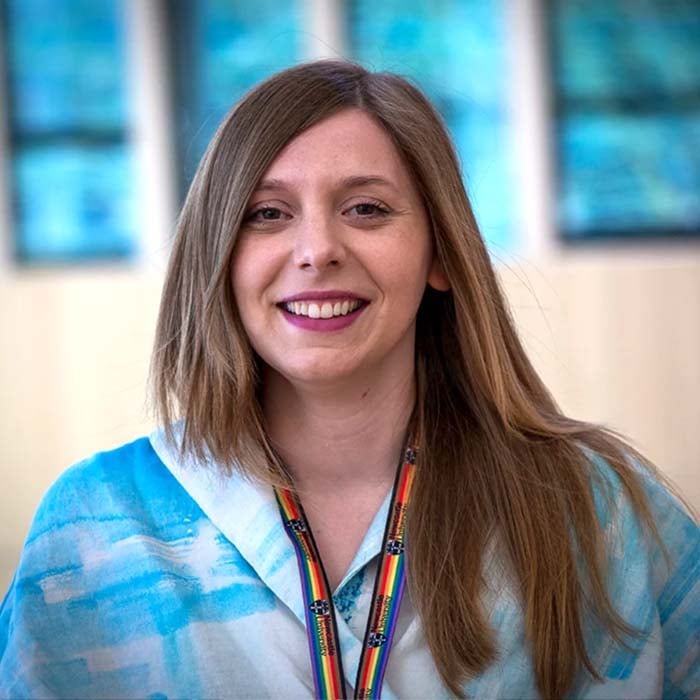
Rachel Pattinson, CDT Manager (Digital Civics)
What does it mean to be a woman in STEM?
For me, being a woman in STEM means I work on innovative and emerging technology projects which have a real social impact. I manage digital research and innovation projects in Open Lab, a world-leading interaction design and ubiquitous computing research group in the School of Computing at Newcastle University.
What role would you like to play in relation to women's rights in your area of expertise?
l play a role in promoting and supporting women's rights by aiming to be fair and supportive to all the students and staff I work with in the School of Computing.
One of the things I love about my current role is supporting women to progress in their technology and research careers. And I'm proud of the way Open Lab shares technology expertise with communities, including working with women's organisations.
What advice would you give to young women going into your industry?
Lots of young women are put off digital careers because they aren't given enough information about them, there aren't enough role models and it's a male-dominated sector. But my experience demonstrates that you can always pivot. Although my background is in the arts, I won a national TechWomen100 award in 2020, after completing my first year in a digital role.
How has your work contributed to the fight against COVID-19?
In Spring 2020, I was one of the co-ordinators of the GetPPE-NCL project, a collaboration between Newcastle, Northumbria and Sunderland universities that aimed to address PPE supply chain shortages by producing and donating PPE items to the NHS.
Collectively, colleagues from across the three universities 3D printed and die cut thousands of visors and we also collected unused PPE the University had on campus. This work won Project of the Year (Public Sector / Not for Profit) at the Dynamo North East awards 2020, recognising excellence in IT and technology.
Which women inspire you?
Most of the women I know! But thinking about women working in technology in the North East, here's three off the top of my head:
Kathryn Wharton: Kathryn has moved from museums into a technology role during COVID-19, as Business Development Manager for Hedgehog Lab – a career pivot during an extraordinary year.
Chi Onwurah MP: Chi is passionate about promoting the North East as a hub for the digital industries, and campaigns to make technology and engineering careers more accessible to women.
Professor Abi Durrant: Abi is the only female professor at Newcastle University’s School of Computing, joining Open Lab in 2020. I work with Abi closely and I’m particularly inspired by her work leading INTUIT, an EPSRC-funded project exploring digital tools and data sharing for people living with HIV.
I am exceptionally proud to have been able to contribute to the national effort during the pandemic
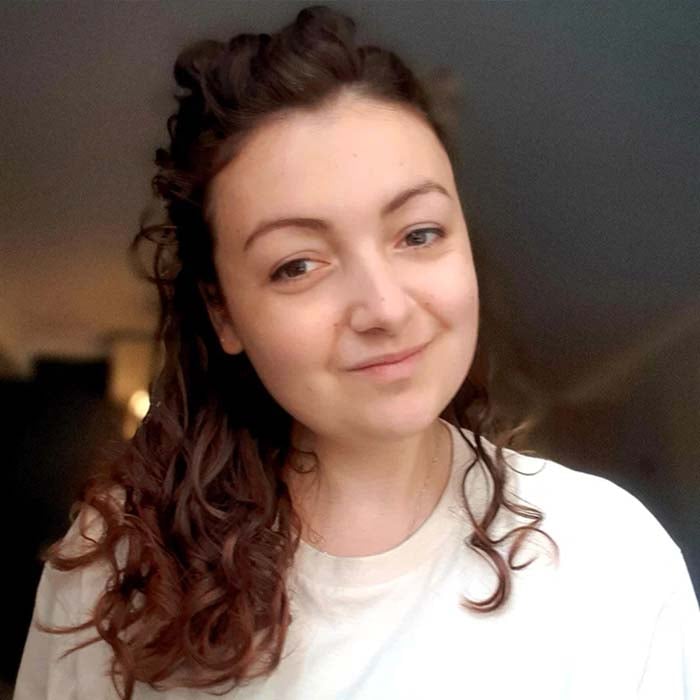
Bethany Gollan, PhD Student
What does it mean to be a woman in STEMM?
I am incredibly proud to be a woman in STEMM. To me, being a woman in STEMM means defying expectation and stereotypes to follow your passion.
How has your work contributed to the fight against COVID-19?
Last year I spent three months as a COVID-19 responder, working in a senior role in the central diagnostic hub. I am exceptionally proud to have been able to contribute to the national effort during the pandemic and to have been part of such an exceptional team.
What role would you like to play in relation to women's rights in your area of expertise?
In addition to my research I have taught for the Brilliant Club, making University more accessible to those from less privileged backgrounds.
I enjoy communicating my work to others, particularly young people who have the odds stacked against them. I strongly believe it is our duty to ensure that young people are able to pursue their ambitions in both academic and non-academic careers.
Which women inspire you?
There are so many incredible women who inspired me at various points throughout my life.
Although I am sure that I could provide a list of inspirational famous names, those who truly inspire me are the hardworking women who I have met along the way, all overcoming their own challenges with exceptional resilience and strength.
What do you do to shape the world in your STEMM role?
In my role as a PhD student, I have been fortunate to be able to provide information and guidance as a woman in STEMM. I have also helped to organise outreach events, making research more attainable to the public, as well as judging STEMM competitions for school children.
It’s never too late to get into STEM!
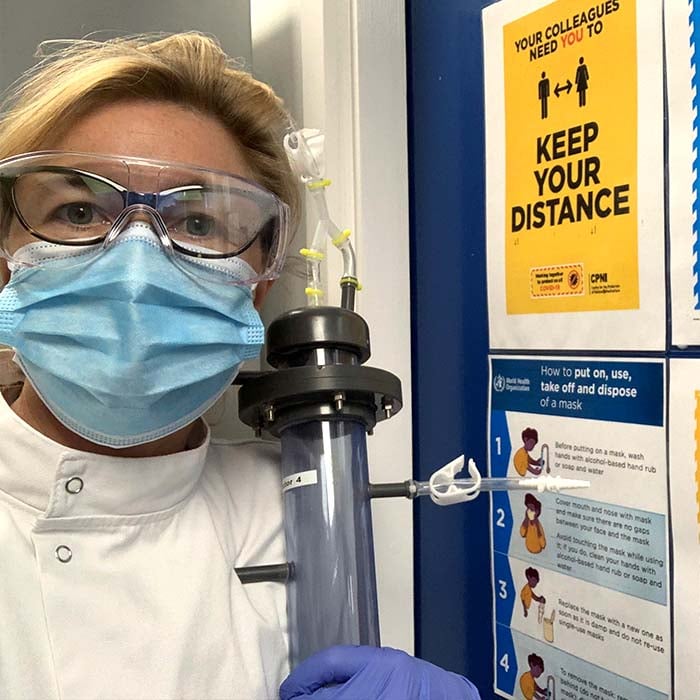
Maggie White, PhD student in Environmental Engineering (School of Engineering)
What privileges or challenges do you stereotypically face?
I feel fortunate now to be part of a progressive research group and have many inspiring colleagues who place value in a good work-life balance. This is important to me as I already had a young family when I started my PhD and I also like to do outdoor sports whenever I can fit them in. This said, I love my research topic, I work hard and I am proud to represent women in STEM. In the past however, I have worked in STEM environments where preconceived ideas about work ethics existed. This was not easy and it is always a challenge to dispel preconceptions, whatever the situation.
What advice would you give to young women going into your industry?
Believe in yourself! You can achieve great things with commitment and hard work and don’t be dissuaded from STEM subjects if this is your passion. Also, it’s never too late to get into STEM!
I believe we can make a big difference for inspiring and educating the next generation
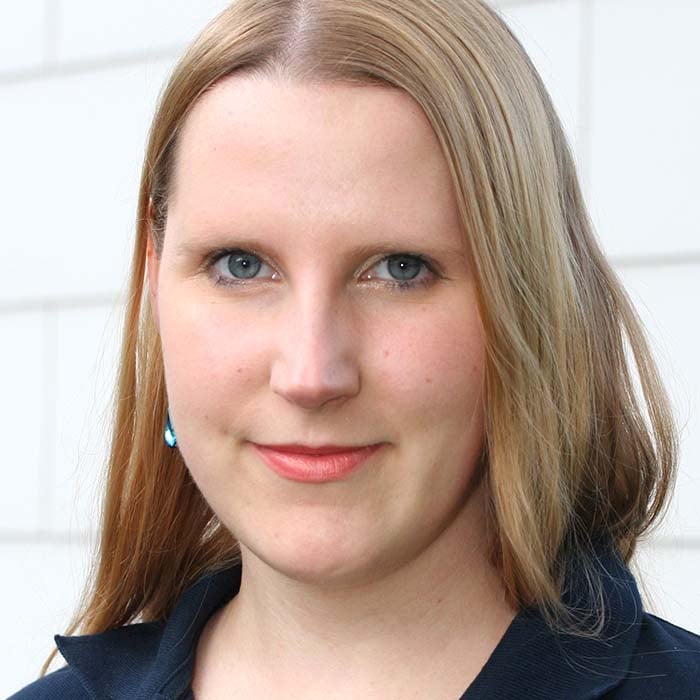
Dr Cora Uhlemann, Lecturer in Applied Mathematics
What does it mean to be a woman in STEM?
What I like about STEM work is that it's first and foremost about the topic. I enjoy that science is done in diverse teams of people with all sorts of identities and backgrounds. While there are still few women in STEM, I believe we can make a big difference for inspiring and educating the next generation.
What advice would you give to young women going into your industry?
The world of STEM is fascinating and versatile, so every young woman interested in it should pursue her interests. The path to a STEM career can be challenging, so it's important to find friends and mentors who can support you along the way and give you a gentle nudge in the right direction.
Which women inspire you?
I am an applied mathematician and find Emmy Noether one of the most inspiring women in my field. She discovered a striking connection between symmetries and conservation laws (called Noether theorem) that is one of the cornerstones of theoretical physics. She persisted in a time when women were largely excluded from academic positions and made her mark despite the obstacles she faced.
What do you do to shape the world in your STEM role?
In my role as a STEM researcher, I investigate how cosmic structure was formed and shaped by gravity. We know that all cosmic structure today grew from initially small seeds of order 10 parts per million. So, as 1 of the million STEM women in the UK, I hope to contribute to the education and growth of a diverse STEM community.
Women in STEM have GRIT
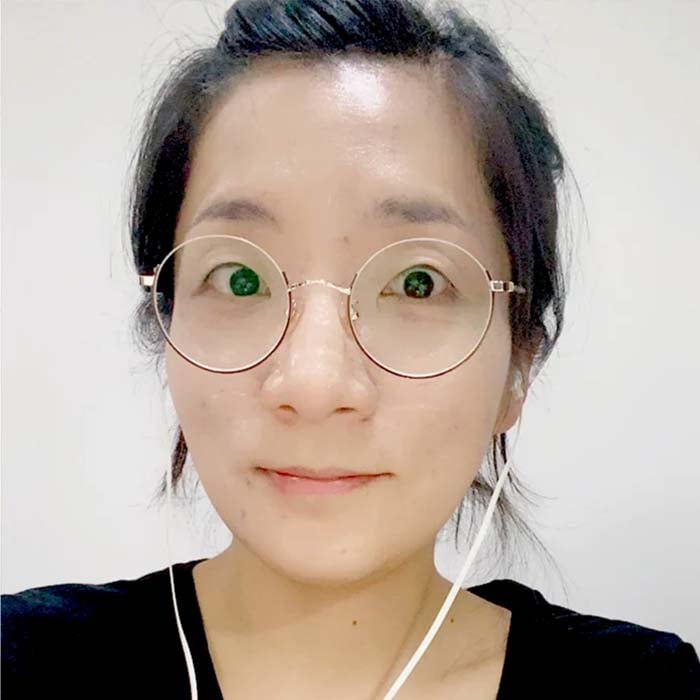
Dr Noori Kim, Assistant Professor (Singapore Campus)
What does it mean to be a woman in STEM?
It means they have GRIT. They have continuously shown passion and perseverance to make them survive in the STEM field today. They are truthful, reliable, and proven-hard working units.
What role would you like to play in relation to women's rights in your area of expertise?
I have been elected as a chair of IEEE Women in Engineering (WiE) Singapore 2021, one of the largest international professional organisations dedicated to promoting women engineers and scientists, and inspiring girls worldwide to follow their academic interests to a career in engineering.
I will work together with WiE members to organize numerous events and activities to help women engineers and scientists in their careers and family lives.
What do you do to shape the world in your STEM role?
As an active committee member of WiE, as well as Women in Science and Engineering (WISE), one of my big motivations is to promote and support the next generation of women in STEM.
Work hard and surround yourself with strong role models and mentors
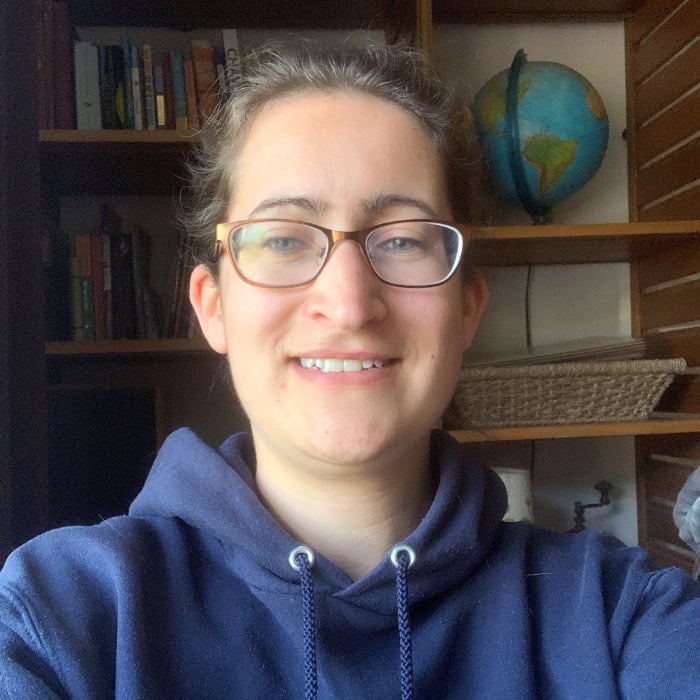
Dr Amy Vincent, Sir Henry Wellcome Postdoctoral Fellow
What does it mean to be a woman in STEMM?
It means being resilient, working hard to demonstrate that you're a competitive scientist, and not letting any stereotype or inequalities hold you back from achieving what you set out to do.
What privileges or challenges do you stereotypically face?
It is often more challenging to gain respect for the work you have done and to make your voice heard. There is also still that stigma around women wanting a family and not being successful due to the time they may sacrifice for this and that just isn't true for male scientists. However, I think one of the advantages is having that network of women who are supporting you.
What role would you like to play in relation to women's rights in your area of expertise?
I've been lucky to have some incredible women in science that have mentored and supported me along the way and as I progress through my career, I would like to be that mentor and offer the same support for the next generation of women in STEMM.
What advice would you give to young women going into your industry?
Work hard and surround yourself with strong role models and mentors, it is a bumpy road and sometimes you need someone to remind you that after a dip, things will get better you just have to keep going.
Which women inspire you?
I had a wonderful tutor Prof Liz Sockett FRS, when I was doing my undergraduate at the University of Nottingham. She is the ultimate role model for women in science, successful, loves her work, an avid networker and an incredible mentor for the next generation of scientists. I'm also inspired by and get a lot of support from Dr Amy Reeve here at Newcastle Uni. Dr Reeve is a fantastic role model for women in science, talented, successful, one of the most resilient people I've ever met and a terrific mentor.
It's important to be an inspiration to the younger generation
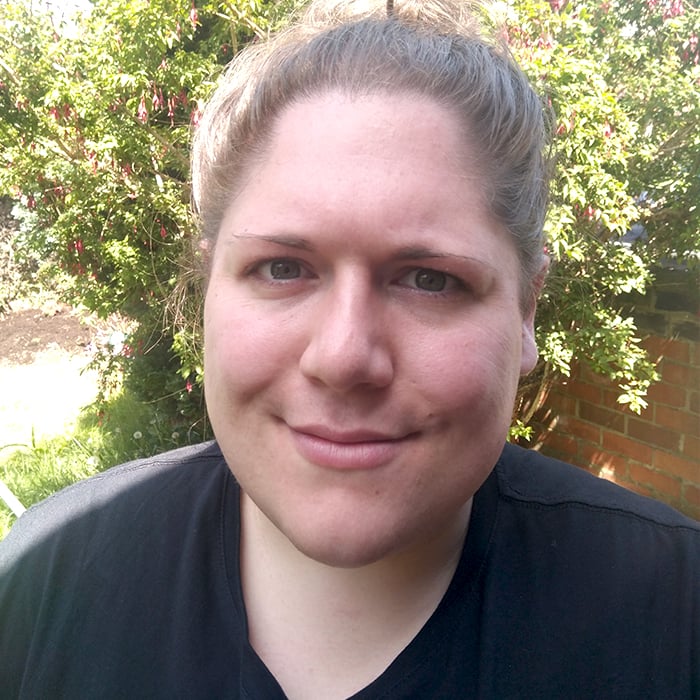
Rebecca Wilson, Anatomy Technician
What does it mean to be a woman in STEMM?
It's important to be an inspiration to the younger generation, and help young women feel empowered to pursue a career in STEMM. Throughout my career so far I've taken part in many outreach activities, relaying the message of STEMM and inspiring young minds in school settings, and showing that women can work in STEMM. I've always enjoyed working in STEMM and being an inspiration to young women taking an interest in pursuing STEMM subjects.
What advice would you give to young women going into your industry?
Go for it! If you have an interest in a subject then stick with it, don't be put off by the opinions of others or thinking that women don't belong in that industry.
I want my children to see me as their parent but also as a scientist
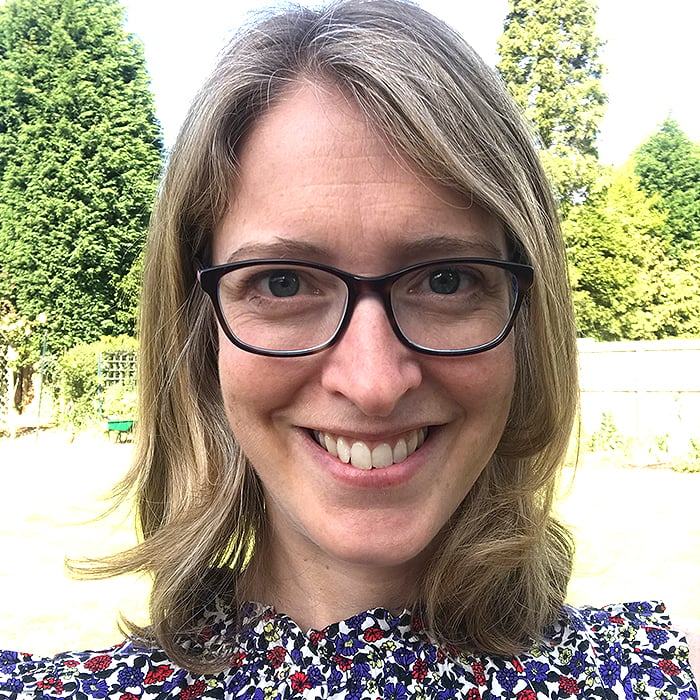
Dr Sarah Pickett, Wellcome Career Re-entry Fellow
What does it mean to be a woman in STEMM?
As a mother, I enjoy being able to inspire my children and others to love science and to question the world around them. I want my children to see me as their parent but also as a scientist - not a 'female scientist' - who really enjoys her job and is trying to make a small positive change in the world. But it means a lot of juggling, particularly at the moment as I am trying to balance home educating, entertaining the children and carrying out my research.
What privileges or challenges do you stereotypically face?
I took an 11 year career break from research science to raise my young family and making my return was not an easy journey. It was very difficult to convince people who were hiring post-docs to take a chance on someone who was very rusty in the lab and also wanted a part-time position. There are few funding opportunities available for career re-entry, but financial and academic support from the Wellcome Centre for Mitochondrial Research allowed me to make a successful application to Wellcome for a Career Re-entry Fellowship.
My job is very flexible so I can fit my work around family commitments. Funding bodies are becoming more aware of the need to take account for career breaks and part-time working, but research science is competitive in nature - there is always pressure to publish as quickly as possible - that's more difficult for a part-time worker.
What advice would you give to young women going into your industry?
- Work on something you love and do it to the best of your ability.
- Take training opportunities wherever you can - science is a journey of life-long learning. That's why it's so exciting!
- Believe in yourself - don't listen to the inner voice that tells you that you might be an impostor!
- Speak to other women in science and ask them about their own career journeys - you will find that there is never just the one route to success!
- Find a mentor outside of your research who you feel understands your motivations.
- Ask lots of questions.
- Take up opportunities that you are offered and seek others!
- Tell other people how amazing it is to be a scientist!
What do you do to shape the world in your STEMM role?
I strive to understand the molecular mechanisms underlying phenotypic diversity in mitochondrial disease.
